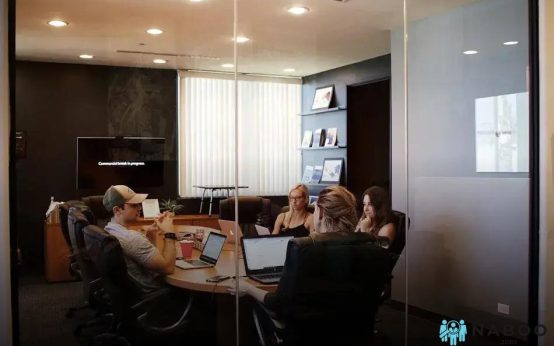How AI is reshaping careers is a topic that intrigues many. With AI advancements, industries see significant shifts, creating a need for adaptation in the workplace. From AI-driven job transformations to new career opportunities, individuals need to acquire essential skills to thrive. This article explores the challenges, adaptations, and how to prepare for the future workforce in an AI-powered world.
AI-Driven Job Transformations
Artificial intelligence is reshaping the way we work, transforming traditional roles and creating new opportunities. As AI technologies advance, they are being integrated into various sectors, redefining job functions and the skills required to perform them. Automation tools powered by AI can handle repetitive tasks, allowing workers to focus on more complex and creative aspects of their jobs.
In industries like manufacturing, AI is used to optimize production lines, enhancing efficiency and reducing errors. In healthcare, AI algorithms assist in diagnostics by analyzing medical data with greater accuracy. Similarly, in finance, AI-driven analytics are utilized to predict market trends and improve decision-making processes.
Transformation Across Sectors
Technology is not only changing existing roles but also creating entirely new job categories. Data scientists, AI specialists, and ethical AI officers are emerging as crucial roles in today’s job market. These positions require a deep understanding of how AI systems operate and the ability to manage their deployment responsibly.
As roles evolve, there is an increased need for workers to reskill or upskill to stay competitive. Understanding machine learning fundamentals, enhancing digital literacy, and fostering critical thinking are among the skills that will be invaluable in navigating this AI-driven landscape.
The Rise of New Career Opportunities
As artificial intelligence (AI) continues its rapid expansion, a significant shift is underway in the job market, with new career opportunities emerging. AI technologies are increasingly being integrated across various industries, leading to the creation of jobs that did not exist a few years ago.
For instance, demand for roles like data scientists, machine learning engineers, and AI ethicists has seen tremendous growth. These positions require expertise in data analysis, algorithm development, and ethical considerations in AI deployment.
Moreover, the healthcare sector is witnessing a surge in career opportunities related to AI. With advancements in diagnostic technologies and personalized medicine, roles such as AI healthcare specialists and bioinformatics analysts are becoming vital.
Transforming Traditional Roles
AI is not only creating new jobs but is also transforming traditional roles. In fields like marketing, human resources, and customer service, AI tools are augmenting the capabilities of professionals, allowing them to focus on more strategic tasks. This transformation necessitates a re-skilling effort, equipping the workforce with skills to harness AI effectively.
Additionally, as automation streamlines routine tasks, roles emphasizing human creativity and emotional intelligence grow in importance. Professionals who adapt by enhancing these skills will likely thrive in the evolving job market.
In summary, the rise of new career opportunities driven by AI is undeniable. Those who adapt and equip themselves with the necessary skills are likely to succeed in this new landscape.
Essential Skills in an AI-Powered World
In an age where artificial intelligence is rapidly transforming the workplace, acquiring the right skills is crucial. Understanding and leveraging AI technologies can significantly enhance career prospects. Core competencies that are essential include critical thinking, adaptability, and constant learning. Critical thinking involves analyzing and evaluating information to make informed decisions. This skill becomes invaluable as AI systems require human oversight for tasks that involve judgments and troubleshooting.
Another key skill is adaptability. The ability to learn quickly and effectively integrate new tools is paramount. As AI continues to alter job landscapes, workers must be willing to adapt to new roles and environments that AI may create.
Continuous Learning
Continuous learning cannot be overstated. With AI technologies constantly evolving, staying updated with the latest advancements is necessary. This means engaging with educational resources, attending workshops, and earning relevant certifications to stay competitive in the workforce.
Digital literacy is also imperative. Proficiency with digital tools beyond basic computer skills becomes essential when AI applications are integrated into daily tasks. Being comfortable with data analysis software, AI platforms, and emerging tech tools will serve as a significant advantage.
Interpersonal skills, such as communication and emotional intelligence, remain crucial. While AI can automate many technical tasks, the human ability to empathize, collaborate, and lead teams can never be fully replicated by machines.
Embracing a mindset of innovation—being able to propose creative solutions—can enhance one’s career in this AI-driven world. Consequently, fostering an innovative approach will help individuals remain valuable in workplaces influenced by AI advancements.
Challenges and Adaptations
The advent of AI into the workplace presents several challenges that employees and companies must recognize and adapt to. One of the primary challenges is the potential for job displacement. As machine learning algorithms and automation become more sophisticated, roles previously performed by humans may be taken over by AI. Industries such as manufacturing and logistics are already experiencing shifts, with robots and automated systems handling tasks that were human-led.
Another challenge is the need for upskilling. Employees must now learn new technologies and adapt to a changing technological landscape. This means companies must invest in training programs to help their staff adapt to AI advancements. Without this, there is a risk of a skills gap, which could leave many workers behind.
Adaptation also involves rethinking the structure of work itself. As AI systems take on more mundane tasks, there is potential for redefining human roles towards more creative and strategic areas. This can lead to a more fulfilling work environment where human talent is utilized more effectively.
Moreover, there are ethical considerations with the rise of AI in careers. Issues of privacy, bias in AI algorithms, and maintaining a balanced work-life structure are paramount. These challenges require a thoughtful approach to ensure AI is integrated in ways that enhance rather than hinder the workforce.
Finally, regulatory frameworks must evolve to address the new dynamics introduced by AI. This includes intellectual property rights for AI-generated content and ensuring equitable access to AI technologies.
While the rise of AI undoubtedly presents challenges, it also opens up avenues for growth and enhancement that must be strategically navigated for a progressive future work environment.
Preparing for the Future Workforce
In a world increasingly shaped by artificial intelligence, preparing for the future workforce requires adaptability and a forward-thinking mindset. Individuals need to embrace lifelong learning to stay relevant. As AI continues to automate routine tasks, developing skills in areas such as problem-solving and emotional intelligence becomes essential. Technology literacy is a given, yet
creative thinking
and human-centric skills such as empathy will stand out.
Furthermore, understanding how to collaborate with AI systems will open new avenues for productivity. Workforce training must focus on how to leverage AI tools to augment human capabilities. Embracing flexibility is crucial as job roles evolve. Remote work and digital collaboration are not just trends; they are new norms. As such, adaptability to shifting work environments is paramount.
Educational institutions and employers must facilitate environments that encourage skill development in line with such advancements. Programs designed to reskill and upskill employees will play a pivotal role in ensuring teams remain competitive. By fostering a culture of change, we can harness the full potential of a technology-driven workforce.




